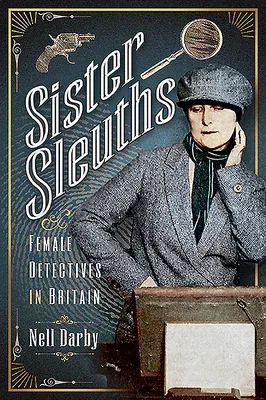The 1857 Divorce Act paved the way for a new career for women: that of
the private detective. To divorce, you needed proof of adultery - and
men soon realized that women were adept at infiltrating households and
befriending wives, learning secrets and finding evidence. Whereas
previously, women had been informal snoops within their communities, now
they were getting paid for it, toeing a fine line between offering a
useful service and betraying members of their sex for money.
Over the course of the next century, women became increasingly confident
in gaining work as private detectives, moving from largely unrecognized
helpers to the police and to male detectives, to becoming owners of
their own detective agencies. In fiction, they were depicted as exciting
creatures needing money and work; in fact, they were of varying ages,
backgrounds and marital status, seeking adventure and independence as
much as money. Former actresses found that detective work utilized their
skills at adopting different roles and disguises; former spiritualists
were drafted into denounce frauds and stayed to become successful
private eyes; and several female detectives became keen supporters of
the women's suffrage movement, having seen for themselves how
career-minded women faced obstacles in British society.
These were groundbreaking women, working in the shadows, often unnamed
in press reports. Even today, they are something of an unknown, yet of
intense interest to the public, their work largely an enigma. This new
book seeks to shed light on the female detectives who have worked over
the past century and a half to uncover wrongdoing and solve crimes.

